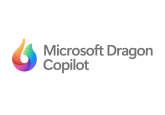Microsoft Embraces AI to “Shape a Healthier Future”

American technology giant Microsoft has announced plans to leverage AI tools to improve its Microsoft Cloud for Healthcare platform, designed to enhance patient care and streamline healthcare operations.
By implementing new healthcare AI models across its platforms, the tech giant is developing strategies to efficiently connect care experiences, improve team cooperation, empower healthcare professionals, and unlock clinical and operational insights.
Rapidly Analyzing Medical Data with Azure AI Studio
Microsoft has launched healthcare AI models for Microsoft Azure AI, a cloud-based platform designed to empower developers to create breakthrough AI applications and foster healthcare innovation while ensuring security.
These models, which help healthcare providers integrate and analyze their data , include the following:
MedImageParse:
MedImageParse is developed for accurate image segmentation, including X-rays, magnetic resonance imaging, ultrasound scans, dermatology visuals, computed tomography scans and pathology slides. It could potentially assist in tumor segmentation or organ delineation in cancer and other illness detection, diagnostics and treatment.
CXRReportGen:
CXRReportGen creates thorough, structured reports from chest radiographic images by combining previous and current visuals with relevant patient data. It highlights AI-generated discoveries directly on the images to comply with processes that involve human oversight. Outstanding results have been obtained on the industry-standard MIMIC-CXR benchmark.3.
MedImageInsight:
MedImageInsight enables advanced image analysis for medical imaging, including tasks like similarity searches and categorization. By leveraging model embeddings, researchers and healthcare organizations can develop custom tools, known as adapters, to improve efficiency in radiology, pathology, ophthalmology, dermatology, and others. These tools can help streamline workflows and potentially improve patient outcomes by enabling more accurate and faster image analysis.
These AI models, developed in collaboration with Microsoft’s partners Paige, Providence Healthcare, Nvidia, and M42, allow healthcare businesses to quickly develop, optimize, and implement AI solutions tailored to meet their specific requirements.
Microsoft Fabric: Transforming Medical Data Interaction With AI
Microsoft Fabric’s goal is to address the challenges health professionals face when it comes to accessing medical data due to its non-linear structure and the limitations posed by current data management systems.
To achieve this, Microsoft Fabric offers an innovative approach to data usage and management, including:
- The integration of conversational data — transferring conversational data from DAX Co-pilot to the Fabric platform —
- Transforming public datasets on social determinants of health
- Improving claim data ingestion for Centers for Medicare & Medicaid Services
- Enhancing care management analytics to identify high-risk patients while enhancing treatment plans and care coordination.
- Fostering data discovery to enable healthcare institutions to create, manage, analyze and share patient cohorts.
Azure Health Bot: Conversational AI Solutions for Healthcare
Powered by the Microsoft Co-pilot Studio, and thanks to its integrated medical database and language skills, the AI-powered Azure Health Bot is capable of understanding clinical terminology, allowing healthcare organizations to build and deploy conversational healthcare experiences.
The bot can create virtual health assistants, adapt to specific healthcare needs, and integrate with Electronic Medical Records through Fast Healthcare Interoperability Resources, which supports the exchange of health information. This allows for customized patient workflows while maintaining strong privacy and security measures.
Reshaping Nursing Framework With AI
According to the World Health Organization, there will be a shortage of 4.5 million nurses by 2030.
To assist in relieving work overload in current nursing staff, Microsoft has teamed up with different healthcare institutions including Intermountain Health Saint Joseph Hospital, Mercy, Northwestern Medicine, Stanford Health Care, and Tampa General Hospital to create a tool that uses ambient technology to draft charts for review. This would potentially allow nurses to focus less on paperwork, enabling them to invest that extra time in their patients.
“For nurses, the integration of AI-driven solutions into our workflows is a game changer. It allows us to focus more on patient care rather than the administrative burden of documentation. By automating tedious tasks, Microsoft’s ambient AI solution helps alleviate burnout and gives us more time to connect with our patients at the bedside, where we truly make a difference.”
Terry McDonnell DNP, ANCP-BC, senior vice president and chief nurse executive, Duke University Health System, vice dean for Clinical Affairs, Duke University School of Nursing, Duke Health.
To ensure its efficiency and successful adaptation into real-world workspaces, the design process of the AI solution has been carried out taking into account the specific needs of real-world nurses.
“Nurses need to be at the table. They need to be a voice; they need to be able to help technology teams figure out you can’t just put a solution out there. You must get into the actual workflows and understand how nurses work.”
Lea Ann Arnold, Director of Nursing Informatics at Northwestern Medicine
The Potential Pitfalls
According to Microsoft’s principles of development and use of AI tools, the company is committed to ensuring AI technologies positively impact healthcare systems as well as society in general. By testing and monitoring systems to avoid potential bias and risks, Microsoft aims to provide organizations with the capacity needed to create high-standard AI tools and fully leverage their potential in healthcare.
However, despite the increasing application of AI in many areas of healthcare including cancer research, pulmonary embolism detection and protein stability prediction, the risks implied in using these tools for medical purposes cannot be ignored.
AI faces significant challenges related to bias, patient privacy and device reliability, which hinder its effective integration into modern healthcare settings.
Therefore, further research will be necessary to address these issues and ensure the safe and reliable deployment of AI tools in today’s healthcare systems.





